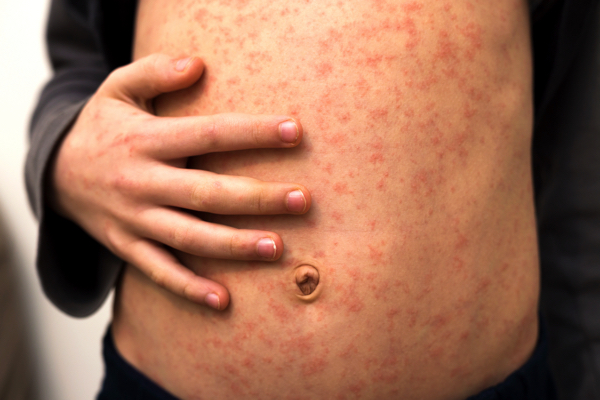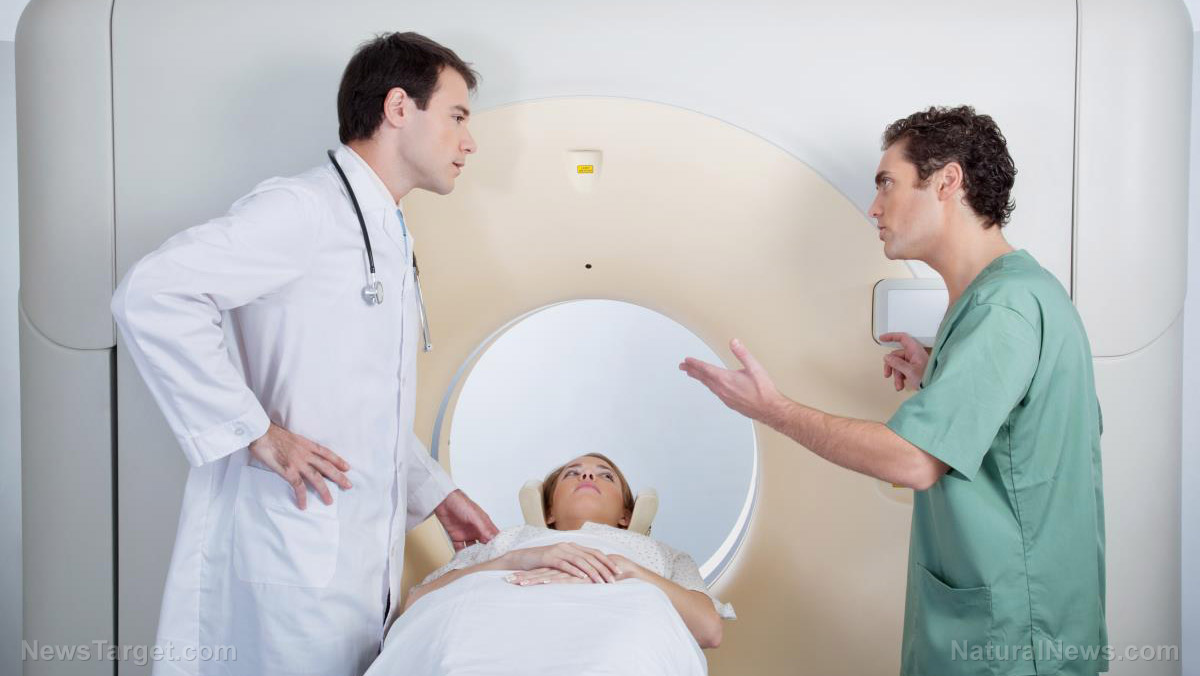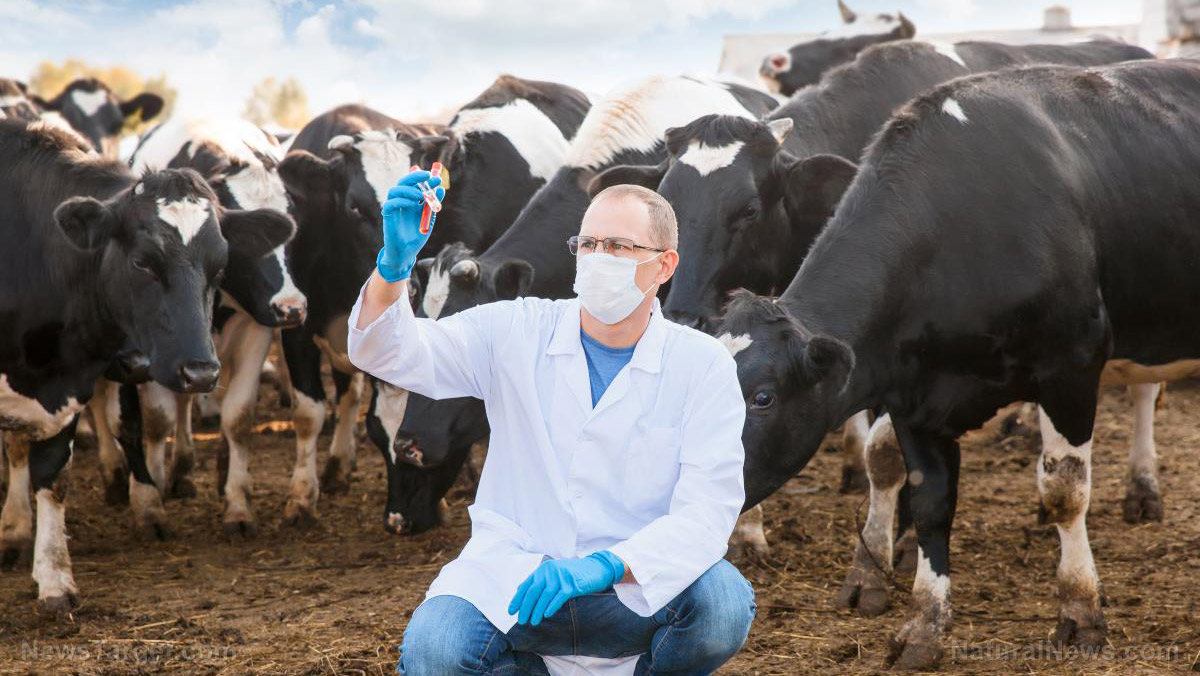Measles cases in Texas rise to 663: But is the MMR vaccine really the answer?
04/29/2025 / By Lance D Johnson

The Texas health department reported 663 cases of measles, raising concerns about vaccine effectiveness and transmission dynamics. This number likely does not represent the actual number of cases, which could be far greater, due to many unvaccinated children recuperating at home and not reporting to the medical authorities.
While mainstream narratives push aggressive vaccination campaigns, what’s often ignored is that measles outbreaks can occur even in highly vaccinated populations.
Key considerations instead of fear-driven promotions:
- Vaccine shedding risk – Unlike natural immunity, live-virus vaccines can lead to temporary viral shedding, putting vulnerable individuals at risk.
- False positives & misdiagnosis – MMR vaccination may cause false IgM test results, complicating outbreak responses.
- Natural immunity superiority – Prior infection often confers stronger, lifelong immunity compared to waning vaccine-induced protection
- No coverage of natural treatments puts kids at risk – While natural immunity provides greater antibody response for the long haul, acquiring the infection naturally can have its risks, too, especially if an infected child is having their fever starved, they are not taking and assimilating vitamin A, C, and D during the course of illness and in the weeks thereafter, or if bronchodilators are not used during labored breathing.
The MMR vaccine: Informed consent vs. unnecessary risks
The Measles-Mumps-Rubella (MMR) vaccine has been widely debated due to its potential links to severe side effects, including autism, encephalitis, and even increased susceptibility to measles in vaccinated individuals. Contrary to public health claims, emerging evidence suggests that the MMR vaccine may not provide the long-term protection it promises, and in some cases, vaccinated individuals may still contract and spread the disease.
Live-attenuated vaccines like MMR contain weakened viruses that can replicate in the body. This means vaccinated individuals may shed the virus, potentially exposing those around them — especially high-risk groups such as immunocompromised individuals and infants. Studies have shown that rubella vaccine virus can be detected in breast milk, posing risks to nursing infants. Additionally, false-positive IgM test results after vaccination complicate disease surveillance, making it difficult to distinguish between vaccine-derived and natural infections.
Analysis of Merck’s M-M-R II vaccine highlighted risks, contraindications, and shedding concerns
Contraindications: High-risk populations must avoid vaccination, as disclosed in Merck’s fact sheet for their blockbuster MMR vaccine.
The M-M-R II vaccine is absolutely contraindicated in:
- Immunocompromised individuals (e.g., those with HIV/AIDS, cancer patients on chemotherapy, or autoimmune disease patients on immunosuppressive drugs).
- Pregnant individuals or those planning pregnancy within 1 month — rubella vaccine virus may infect the placenta and cause congenital rubella syndrome (CRS) in the fetus, including severe defects like deafness, intellectual disability, and organ malformations.
- Severe egg or gelatin allergies, as the vaccine contains neomycin and gelatin.
- Active untreated tuberculosis, due to immune dysregulation risks.
- Moderate/severe febrile illness, delaying vaccination until recovery.
Vulnerable populations at risk of compromised responses:
Infants <12 months: Lack established safety/effectiveness for mumps/rubella. Early vaccination may fail and increase risk of vaccine-derived transmission to unvaccinated infants.
Geriatric patients: Limited efficacy data for immunocompromised elderly.
Adverse events: serious and potential long-term risks
The prescribing information highlights severe adverse reactions:
- Febrile seizures: Occur in ~32% of children aged 14–18 months post-vaccination, with a peak at 9–10 days.* These seizures may recur and raise concerns in children with prior seizure history.
- Neurological complications: Rare reports of encephalitis, encephalopathy, or acute disseminated encephalomyelitis (ADEM), which can be irreversible.
- Autoimmune/thrombocytopenia: Transient or persistent thrombocytopenia (low platelets) and optic neuritis.
- Vaccine-induced measles or rubella-specific IgM: False-positive IgM tests can occur up to 6 weeks post-vaccination, complicating diagnoses of wild-type infections.
- Autism incidence: Current HHS studies must look at the MMR and autism link, as countless mothers have reported neurological and language regression in their child, following MMR vaccination.
Vaccine shedding: Transmission risks to vulnerable groups
While the insert does not explicitly address shedding beyond 28 days, the following data raise concerns about potential spread of vaccine viruses:
- Rubella virus shedding: Lactating women may secrete rubella vaccine virus in breastmilk (§8.2), potentially exposing breastfed infants to mild cases of rubella-like illness. Combined with infants’ unvaccinated status (<12 months), this could lead to severe outcomes in rare cases.
Studies suggest Rubella vaccine virus shedding via milk may persist for weeks, necessitating caution. - Measles and Mumps virus shedding: While not explicitly detailed in the insert, live-attenuated measles and mumps viruses can replicate transiently in the oropharynx. Limited studies suggest shedding lasts up to 1–4 weeks—not beyond 28 days—but cannot be ruled out in immunocompromised hosts.
Critical considerations for spread:
- Immunocompromised individuals (contraindicated for vaccination) may contract vaccine strains from shedders, leading to disseminated disease (e.g., measles inclusion body encephalitis).
- Infants <12 months are “immune blind spots” unable to mount strong responses. They could acquire vaccine or wild-type viruses through close contact.
- Vaccine-derived measles may cross-react with wild-type infection diagnostics, complicating outbreak investigations.
False positives and diagnostic challenges
Misdiagnosis of wild-type measles:
- IgM testing: Often used in acute cases—cannot distinguish between vaccine-induced and wild-type infection for up to 6 weeks post-vaccination. This could mislead public health measures, delaying interventions for true cases.
- Phenomena like “Atypical Measles”: Rare reactions in partially immune individuals may mimic wild infection.
Recommendations for vulnerable groups
- Pregnant individuals: Strictly avoid M-M-R II, as rubella shedding could infect the fetus even 1 month post-vaccination.
- Nursing mothers: Weigh rubella vaccine risks vs benefits. Care must avoid transmitting virus to infants <12 months.
- Immunocompromised hosts: Avoid areas with recent MMR recipients for at least 4 weeks to mitigate shed virus exposure.
- Infants <12 months: Use alternative preventative measures (e.g., herd immunity) as vaccination is ineffective and risky.
The M-M-R II vaccine, while advertised as lifesaving, carries serious risks for immunocompromised individuals, infants, and pregnant women. Vaccine-derived shedding—especially rubella via breastfeeding—and IgM cross-reactivity emphasize the need for meticulous exclusion of contraindications and careful monitoring in vulnerable populations. Health providers must consider transmission dynamics and diagnostic challenges to prevent preventable harm. This analysis underscores the responsibility to use M-M-R II only in populations where benefits clearly outweigh the risks, particularly in communities with at-risk individuals.
Sources include:
AccessData.FDA.gov [PDF]
Submit a correction >>
Tagged Under:
autism, CDC controversy, encephalitis, false positives, immunocompromised, informed consent, live virus vaccine, measles outbreak, medical freedom, Merck, MMR vaccine, Mumps, natural immunity, pharmaceutical risks, rubella, texas measles, Thimerosal, vaccine failure, Vaccine injuries, vaccine mandates, vaccine risks, vaccine shedding, vaccine side effects
This article may contain statements that reflect the opinion of the author





















